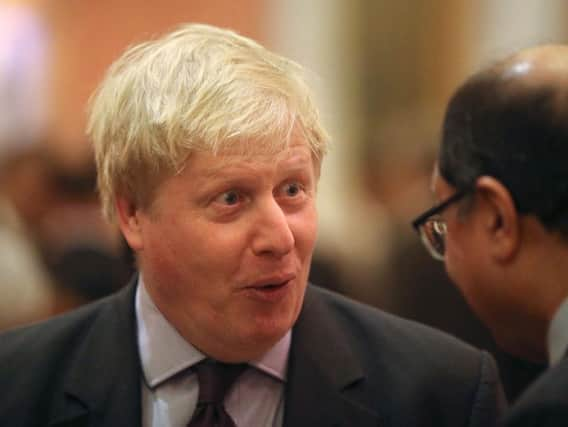Brexit: Boris Johnson lied about his alleged lie to the Queen – Brian Wilson


Be careful what you wish for. On balance, I prefer to leave political decisions to politicians rather than to judges who may not always be on the side of progress.
The dangers of precedent should always be borne in mind when celebrating legal victories. If political lies are to be the basis of court actions, then M’Lords Carloway and Co will be kept busy.
Advertisement
Hide AdAdvertisement
Hide AdFor example, what would they have made of the 2014 independence White Paper? How interesting if all the horse-trading between political bullies and cowed civil servants had been exposed, even retrospectively, to public gaze.
And that really is the key. Transparency enforceable by law is far more desirable than allowing judges to second guess political outcomes. Let the people decide – but first they must have access to the evidence. Which politicians are cheering for that principle?
With his usual flagrant disregard for truthfulness, the Prime Minister claimed that the High Court in London had taken “the opposite view” from the Court of Session on whether or not he lied to the Queen.
In fact, the High Court in London did no such thing. It simply did not regard it as its business to determine motivation for a political action, so was not required to take a view on whether Johnson lied.
Its ruling said: “Even if prorogation was .. designed to advance the Government’s political agenda regarding withdrawal from the EU rather than preparations for the Queen’s Speech, that is not territory in which a court can enter ...”
Similarly, the Northern Ireland High Court found: “Within the world of politics... unpublished declarations, posturing, strategy and tactics are the very essence of what is both countenanced and permitted in a democratic society”. So none of our business.
Perhaps the hearing before nine Supreme Court judges will give rise to evidence of duplicity so “egregious”, in Lord Brodie’s word, that it goes beyond these broad parameters of political chicanery and makes Johnson’s position untenable.
That would be splendid – but it would still be a political outcome rather than a legal or constitutional one. Transparency is the essential requirement and the court of public opinion is the forum in which Johnson should be judged. So let’s now see the evidence.
Advertisement
Hide AdAdvertisement
Hide AdAnother risk is that courtroom dramas which might lead nowhere divert attention from the real meat of debate. There was a bit of that going on this week when the emphasis should have been on Operation Yellowhammer, the Government’s own warnings – not meant for public consumption – of what “no deal” could mean.
The passage on Northern Ireland alone should be enough to stop this madness in its tracks. Trade will be “severely disrupted”; some businesses will stop trading; there will be job losses, protests and direct action with road blockages; the “illegitimate economy” around the border “where criminal and dissident groups already operate” will expand...
All these are regarded as prices worth paying by the crazies promoting “no deal”. Just like the disruptions to trade and massive threat to jobs that the rest of the country faces – some of which are spelt out in Yellowhammer.
When it was first leaked, Michael Gove dismissed Yellowhammer as an “old document” overtaken by events when in fact it was 16 days old and drawn up after Johnson took office. Gove also claimed it had been a “worst case scenario” when it was actually labelled “base scenario”.
These were straightforward lies, designed to deceive on matters of great practical seriousness. Nobody went to court but lying to people whose lives will be cruelly affected is surely at least as serious as lying to the Queen who is unlikely to be unduly inconvenienced.
The courts may be an essential “backstop”. But it is the electorate which must be allowed to know the facts and pass its judgments.